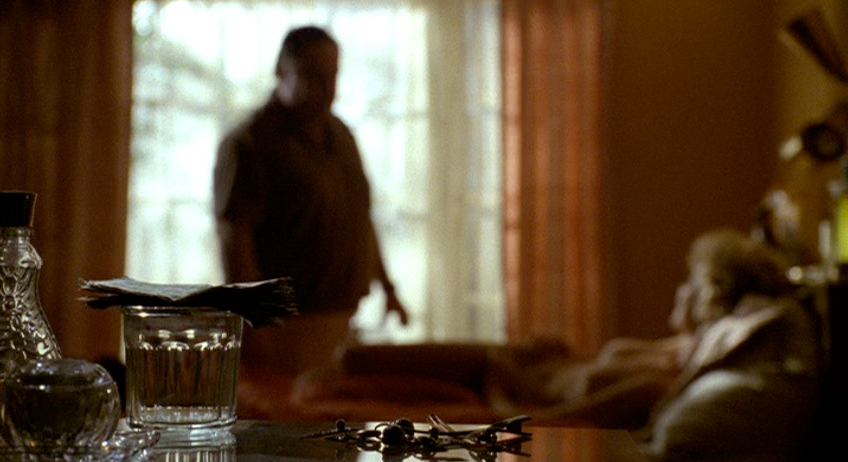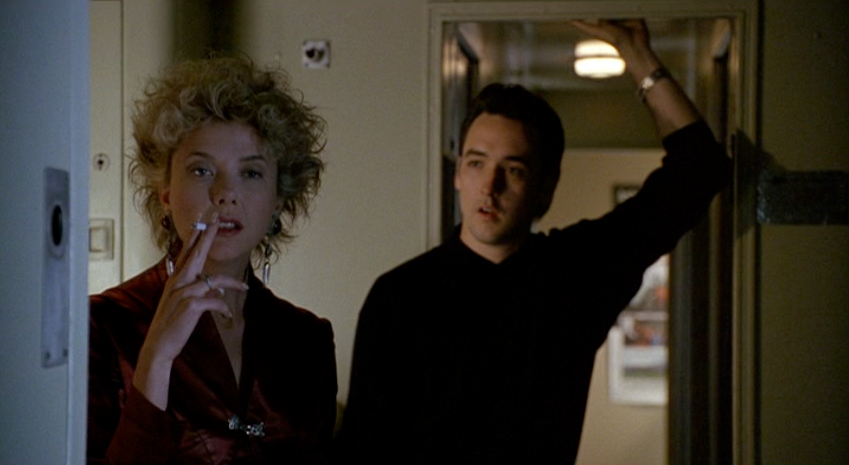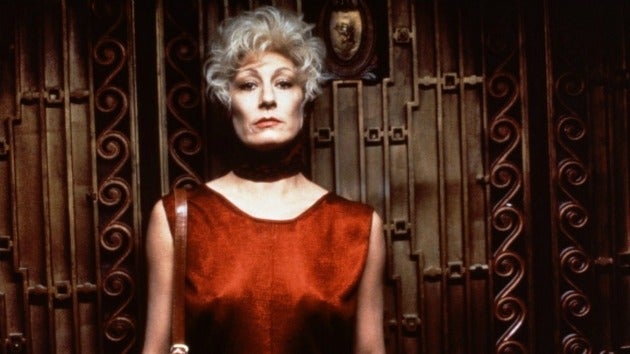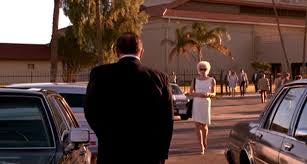
From the funtastic new book, The Getaway Car: A Donald Westlake Nonfiction Miscellany, check out this short essay Westlake wrote about working with Stephen Frears.×
Westlake wrote a screenplay based on Jim Thompson’s The Grifters for Stephen Frears’s acclaimed 1990 film adaptation, which ended up receiving four Academy Award nominations, including one for Best Screenplay. This essay was published in Writers on Directors in 1999.
Here are two things Stephen Frears said to me. The first was several months before The Grifters was made and, in fact, before either of us had signed on to do the project. We had just recently met, brought together by the production company that had sent us to California to look at the place. Driving back from La Jolla toward L.A., me at the wheel of the rented car, Stephen in the seat beside me musing on life, he broke a longish silence to say, “You know, there’s nothing more loathsome than actually making a film, and it’s beginning to look as though I’ll have to make this one.” The second was the night of the same film’s New York premiere, at the post-opening party, when he leaned close to me in the noisy room and murmured, “Well we got away with it.”

I think what attracted me to Stephen in the first place is that, in a world of manic enthusiasm, here at last I’d met a fellow pessimist. Someone who would surely agree with Damon Runyon’s assessment: “All of life is six to five against.”
Not that he’s a defeatist, far from it. For instance, he refused to let me turn down the job of writing The Grifters, a thing that never happens. The normal sequence is, a writer is offered a job, thinks it over, says yea or nay, and that’s that. Having been offered this job, I read Jim Thompson’s novel—or reread, from years before—decided it was too grim, and said nay. That should have been the end of it, but the next thing I knew, Frears was on the phone from France, some Englishman I’d never met in my life, plaintively saying, “Why don’t you want to make my film?” I told him my reasons. He told me I was wrong, and proceeded to prove it—”It’s Lilly’s story, not Roy’s,” was his insight, not mine—and I finally agreed to a meeting in New York, which was the beginning of the most thoroughly enjoyable experience I’ve ever had in the world of movies.

Here’s another thing Stephen said to me: “I like the writer on the set.” This is not common among directors, and I wasn’t at all sure what it meant. Did he want a whipping boy? Someone to hide behind? Someone to blame? (You can see that I too am not a manic enthusiast.)
Anyway, no. As it turned out, what he wanted was a collaborator, and what we did was a collaboration. I didn’t direct and he didn’t write, and between us both we licked the platter clean.
I am not a proponent of the auteur theory. I think it comes out of a basic misunderstanding of the functions of creative versus interpretive arts. But I do believe that on the set and in the postproduction process the director is the captain of the ship. Authority has to reside in one person, and that should most sensibly be the director. So my rare disagreements with Stephen were in private, and we discussed them off-set as equals, and whichever of us prevailed—it was pretty even—the other one shrugged and got on with it.
The result has much of Jim Thompson in it, of course. It has much in it of the talents of its wonderful cast and designer. It has some of me in it. But the look of it, the feel of it, the smell of it, the three-inches-off-the-ground quality of it; that’s Stephen.
If we aren’t going to enjoy ourselves, why do it? Stephen’s right, much of the filmmaking is loathsome. Pleasure and satisfaction have to come from the work itself and from one’s companions on the journey. The Grifters was for me that rarity; everyone in the boat rowing in the same direction. I hadn’t had that much fun on the job since I was nineteen, in college, and had a part-time job on a beer truck with a guy named Luke.

The Getaway Car is on sale now.
[Copyright Donald E. Westlake. Reprinted with permission from The Getaway Car: A Donald Westlake Nonfiction Miscellany, published by the University of Chicago Press. All rights reserved.]



